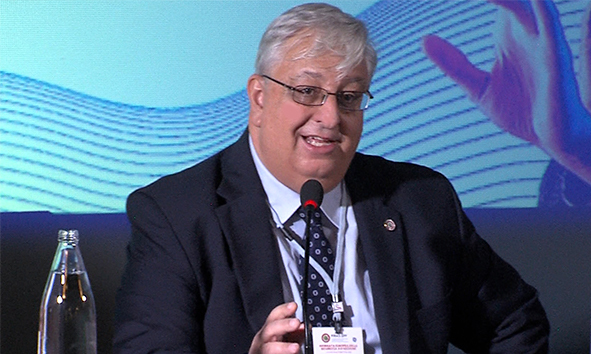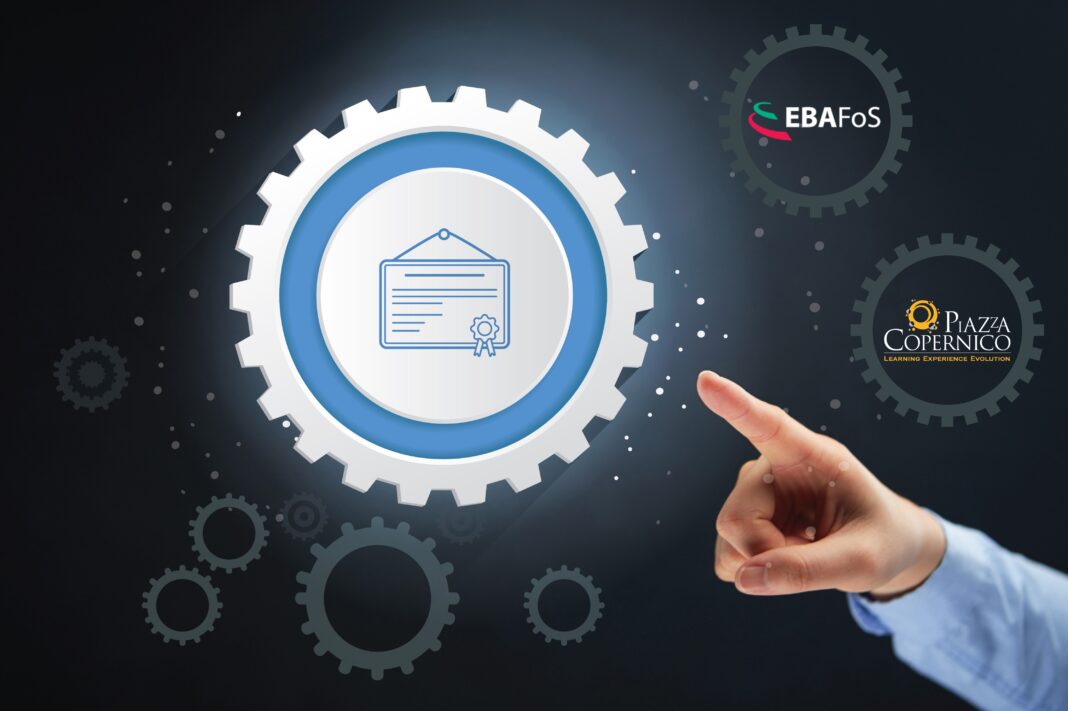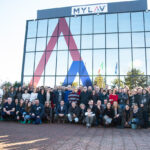In the wake of President Ursula von der Leyen’s announcement in her 2022 State of the Union address, the European Commission has proclaimed 2023 as the European Year of Skills, strongly emphasising the need to place the role of the skills of the entire European population at the centre of the ongoing digital transformation. Only by enhancing learning opportunities and facilitating the recognition of qualifications with an appropriate certification system will Europe be able to achieve digital sovereignty in an increasingly interconnected world, in which the role of citizens in becoming active players in an increasingly digital, sustainable and fair future will also be decisive. “The challenge of adopting important digital innovation processes in defence of the inclusion of the entire Italian population in the reskilling and upskilling processes linked to the evolution of the European labour market pushes us to search for increasingly advanced and high-performance technological solutions resulting from partnerships with leading companies in their specific sectors,” says Anthony Vitali, Secretary General of FIRAS-SPP, a UGL confederate, and President of EBAFoS, a bilateral body and national joint body, in this lengthy interview.
by Roberta Imbimbo
Dr Vitali, what does the strategic programme for the digital decade aim to achieve?
The European project aims to evolve the operational level of society, hinging on digital knowledge and tools (more and better skills open up new opportunities and enable people to participate fully in the labour market, to exploit and benefit from the possibilities offered by green and digital transitions). Europe therefore aims at empowering businesses and citizens in an increasingly digital, sustainable and prosperous future through the acquisition of digital skills that are becoming increasingly important in the new global scenario (the Strategic Programme for the Digital Decade, which sets concrete goals and targets for 2030, states that every European citizen should be able to make competent and positive use of evolving digital technologies, including for the protection of human rights and dignity). What Europe therefore requires of us is the acquisition of digital European citizenship skills, which cut across the labour market and affect all people living and working in the European Union.
So what does it mean to be a digital citizen and why is it important to keep up with the transformation imposed by the European digital decade?
The European Model for the Digital Decade and the ‘Digital Compass 2023’ have among their objectives precisely the strengthening of the digital skills of European citizens. And the ‘European Agenda for Skills’ sets the goal of having at least 70% of the European population equipped with basic digital skills by 2025. In this regard, the European Commission’s Joint Research Centre (JRC) has developed the DigComp 2.1. framework, a guiding document aimed at better detailing digital competences. Specifically, 21 exquisitely digital competences are listed, gathered in 5 competence areas, which European citizens will have to possess, at least at a certified basic level of mastery, by 2025. No European citizen, therefore, can afford to lag behind the ongoing digital transformations. The common horizon is to empower each individual to be an active player in the dual ecological and digital transition, overcoming current resiliences to digital change. Being equipped with these skills is therefore a prerequisite for full active citizenship and full participation in today’s labour market. Hence, the great responsibility of training organisations, which must in turn adapt and innovate (including by using innovative digital platforms for training delivery, new channels for sharing skills, such as Open Badges, as well as new forms of skills crystallisation through the use of Blockchain), in order to be the driving force behind the ongoing social and economic evolution.

What is the situation in Italy regarding the system of skills certification?
Recently, the Ministry of Labour has drawn up the INAPP Atlas of Work and Qualifications, a very useful framework for mapping and translating individual professions into ‘competences’ so that professional qualifications are mutually recognised among all the Member States.
The EU, in promoting the value of the individual on the world stage, values precisely the instrument of competence certification. And so, in addition to the possibility for European citizens to have their hard and soft skills recognised, the most important dimension of this innovative project lies precisely in the possibility for professionals to be able to work in any EU Member State thanks to a mutually recognised and certified qualification. The wealth of professional experience (with the exception of recognised and digital experience) of the individual, whatever the context in which he or she acquired the learning, is thus translated into “competences”.
What is the role of EBAFoS in this context? Can you also tell us about the valuable partnership with Piazza Copernico?
People’s digital skills are constantly evolving, and consequently the way of learning has to change at the same pace. And so trade unions are today called upon to play a role of great responsibility in protecting the workforce with regard to the acquisition and certification of skills, through the restructuring of continuing vocational training chains (whether in-presence, e-learning or distance learning). For years now, EBAFoS has been moving in this direction, through the design and development of digital platforms, which guarantee not only the referencing and validity of training offerings, but also a new way of digitally managing one’s professional identity. To this end, the partnership with Piazza Copernico, a leading company in the field of e-learning training, is fundamental. Without it, the realisation of our digital objectives, in terms of content and tools (i.e. the possibility of e-learning training with referencing of competences to the digitally traced Job and Qualifications Atlas – INAPP) would not have been possible, and without which it would not have been possible to maintain the high quality standards that EBAFoS has always set itself. EBAFoS and Copernicus Square are therefore united in the face of the new opportunities of the global market (our goal is to arrive at a digital certification of skills in Blockchain), adopting highly advanced technological business models and strategic training activities in the digital era.
For more info (https://www.piazzacopernico.it)























































